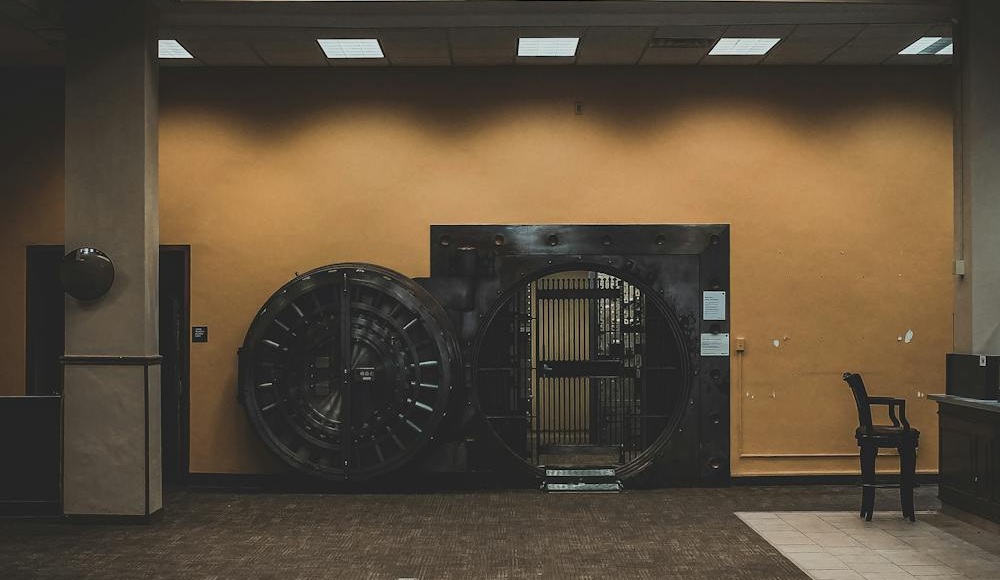“Straight Edge Finance” is a column written by Clark Troy, and presented by Red Reef Advisors
I met with a guy some weeks ago, a guy a few years older than me. We were having lunch at a new place in town, a soul food restaurant founded by the granddaughter of the founder of a Chapel Hill institution that earned plaudits from the likes of Oprah before closing down not long ago. We were talking a little business, no little local history, and a lot of basketball, as people of a certain age are wont to do here in the self-declared yet universally recognized Southern Part of Heaven/Basketball Capital of the World.
We also touched on his finances. “How can I keep my money safe?” he asked. It’s a pretty common question. It is, one could argue, an ongoing, omnipresent question, a question that envelops all of us all the time. But the question has many facets.
Most of the time, people have in mind the nominal or face value of their money: as in “How can I make it so the numbers I see when I look at my account don’t go down?” This of course is the simplest thing in the world. One need only put one’s money in a bank or, at moments when interest rates are greater than zero (as they have been for more or less all of human history) a money market fund so that one’s money grows at a rate not far below inflation.
Aye, but there’s the rub. What we all seek to protect is in fact not our money’s nominal value but its purchasing power, which is being constantly eroded by inflation, even when inflation is low. One is tempted to think it would be nice to have a spate of deflation so that prices would go back down to what they used to be. But while falling prices of some things, like gasoline, hold a certain appeal, nobody actually wants generalized deflation, because debts (i.e. your mortgage payment) are denominated in nominal dollars. So if you have a mortgage even with a historically low 3% interest rate and you try to service it during a period of deflation, it will eventually get hard because you won’t be getting raises and eventually some member or your household will either lose a job or be subject to a wage reduction as his/her employer loses its ability to compensate employees as its customers demand lower prices by voting with their feet. But the mortgage payment remains the same, so you end up working more hours to service the same debt.
Inflation, then, is both our friend in that it reduces the cost of our fixed liabilities measured in hours of our labor and our enemy in that it erodes the purchasing power of our financial assets. If money market funds can pay us more or less the rate of inflation, shouldn’t we all just put our money in them? Sounds like a good idea, but then there’s the other thing that drags our account values down: spending.
Ahh yes, our dreaded appetites. If we could all just subsist on a constant diet of legumes and sitcom reruns, we’d be fine, but we have higher aspirations for our finite time on this big blue marble. What’s more, we’d like to grant ourselves some enjoyment for as long as possible, see the world, revisit childhood while dandling littluns on our knees, and so on.
So, what we really mean when we say we want our money to be safe is that we’d like to be assured of adequate purchasing power to last our lifetimes. And, as an aside, it’s worth noting that really rich people don’t ask this question. They pretty much know. No, this is a question posed by normal, middle-class people. People who have worked in jobs and tried to maintain a balance between labor and enjoyment the whole time. People who have endured a setback or two along the way. A career challenge here. A divorce there. A health crisis in that corner.
Which brings us to the paradox. To be safe we must either take some risk with our investments, deny ourselves some enjoyment by working longer and harder and/or by paying a lot of money to insurance companies and wellness professional to hedge as many risks as we can think of with diet, exercise, prophylactic home maintenance, insurance and annuities, or some combination of all of these.
My recommendation is always: some combination of all of these. To ensure adequate purchasing power over our lifetimes of indeterminant length many of us need to work a little harder and/or longer, spend a little less, take some calculated and informed risk with our investments, and manage down some risks with healthy behaviors and transfer others through insurance. Each of us has a unique formula based on our own individual needs and tastes, and our personal formulas can change meaningfully as time passes and we learn who we are. It’s a process, indeed, an adventure.
 Clark Troy was born in Durham and educated in the Chapel Hill-Carrboro City Schools, then elsewhere. He is a financial planner at Red Reef Advisors and may be reached at clark.troy@redreefadvisors.com. When not working, he reads, plays sports, blogs, naps, drinks coffee, studies languages and plays guitar, not necessarily in that order.
Clark Troy was born in Durham and educated in the Chapel Hill-Carrboro City Schools, then elsewhere. He is a financial planner at Red Reef Advisors and may be reached at clark.troy@redreefadvisors.com. When not working, he reads, plays sports, blogs, naps, drinks coffee, studies languages and plays guitar, not necessarily in that order.
For more from Clark, subscribe to his substack directly and check out other “Straight Edge Finance” columns in the full archive on Chapelboro



